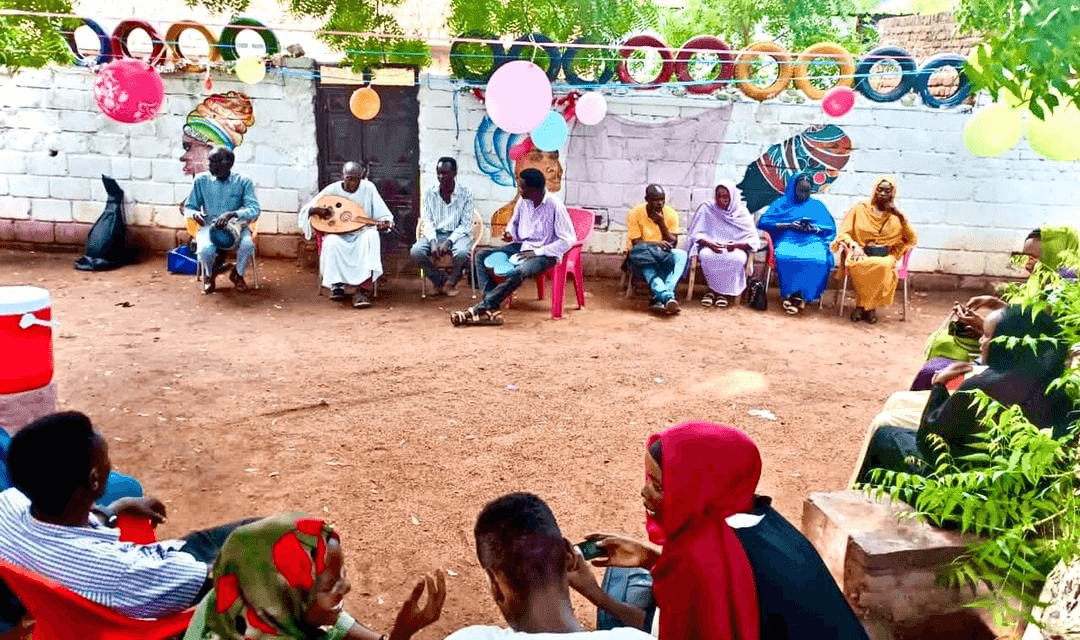Amidst Sudan’s unrest, Kadugli becomes a beacon of hope, rallying for unity over division. Dive into Hassan Ishaq’s portrayal of a nation striving for peace amid adversity.
As Sudan navigates a pivotal moment, the nation’s call for renouncing violence and refraining from hateful rhetoric has never been more pronounced. For a country with a history of internal strife, the prospect of a civil war is a heavy burden the Sudanese can scarcely bear.
In recent times, voices have risen within Sudan, condemning the rhetoric of hate, viewing it as a menace to the nation’s political and social fabric. Many are determined to counter attempts to stir ethnic and tribal discord, as tragically witnessed recently in Al-Geneina, the capital of West Darfur.
Mohammed Al-Sadiq, a dedicated writer and political researcher, is among these voices. Committed to guiding Sudan from its current plight towards a brighter future of stability and peace, he remarks, “This is my primary focus now.” Mohammed perceives the nation’s setbacks, which he believes stem from side conflicts, as a call for unity. He passionately advocates for a united front with Sudan’s interests at its heart.
The Repercussions of Exclusion
The rhetoric of hate and calls to violence are not without historical context in Sudan. Rather than placing blame, Mohammed Al-Sadiq traces these sentiments to past administrative and political strategies that favoured exclusion based on regional, religious, or ethnic affiliations. Mohammed identifies these as remnants of colonial policies, with their divisive influence persisting amongst today’s elite, often giving undue power to a select few.
Such policies, if unchecked, may further escalate violence, insurrections, and even civil wars. Their lingering presence in contemporary Sudan underscores the urgency to challenge and renounce divisive discourse. Al-Sadiq cautions about the psychological consequences, which can sow seeds of hostility within communities, eroding unity and mutual respect. He asserts, “Sudan stands at a crucial juncture. We either steer clear of war’s destructive grasp or get engulfed in perpetual conflict. Our duty as Sudanese is to resolutely oppose the language of violence and hatred, having borne its heavy toll for far too long.”
Pan-Africa Café Forum’s Initiative
In August 2023, the Pan-Africa Café Forum orchestrated an inclusive cultural event in Kadugli, South Kordofan’s capital. The city’s youth turned out in numbers, underlining the importance of fostering unity and cultural harmony, especially given South Kordofan’s prolonged exposure to conflict.
The Pan-Africa Café, with its collaborative efforts alongside local groups, remains committed to forging a harmonious community amid cultural and social diversity—one that champions peace over war, unity over division. The collective vision? A South Kordofan where peace reigns, allowing its inhabitants to thrive in safety, compassion, and serenity.
This mission is crucial for the forum. With diverse perspectives and strategies, they endeavour to amplify this dialogue across various platforms, urging widespread discussions among the Sudanese populace. Notably, the discourse of hatred emerged as a salient topic, linked to challenges like the refusal to recognise diversity, exploiting communal differences for political leverage, racial prejudice, and systemic exclusion.
Towards Potential Solutions
At the Pan-Africa Café forum, the challenge of managing diversity took centre stage. This is particularly pertinent for cities like Kadugli, grappling with the fallout of civil conflicts deeply rooted in regional and racial disparities.
Mohammed Al-Sadiq, a key figure at the forum, underscores the pressing need for a renewed social contract to address these challenges at their core. He envisions a pathway to equitable citizenship, where societal values, culture, heritage, media, governance, and a legal framework converge to uphold genuine citizenship rights. Disregarding this approach, he warns, only perpetuates the status quo, often spiralling into cyclical violence.
Additionally, Al-Sadiq champions social responsibility. Recognising the collective traumas of historical conflicts, he believes in the Sudanese’s earnest resolve to heal from the past and build a future anchored in hope and unity.
The Futility of Hate
Hate speech yields nothing but violence, a force that shatters nations rather than strengthens them. Mohammed regards this as an unarguable truth, reflecting, “As a native of the Nuba Mountains in South Kordofan, my life has been shadowed by war. Wars have been our constant companions, offering us no gains.”
Regions across Sudan portray contrasting narratives. While some have transcended their tumultuous past, others continue to bear the brunt. Recurring conflicts constantly threaten peace. In response, Al-Sadiq advocates a decisive rejection of the prevailing state of affairs, coupled with a relentless pursuit of stability, fairness in resource distribution, and an unwavering respect for every individual’s intrinsic worth.
______
This story was produced by Media in Cooperation and Transition (MiCT) and the North Africa Media Academy (NAMA), in collaboration with the Al Adwaa Media and Journalism Services Centre, and financed by the German Federal Ministry for Economic Cooperation and Development (BMZ). The views expressed in this publication do not represent the opinions of MiCT, NAMA, Al Adwaa, or BMZ.

